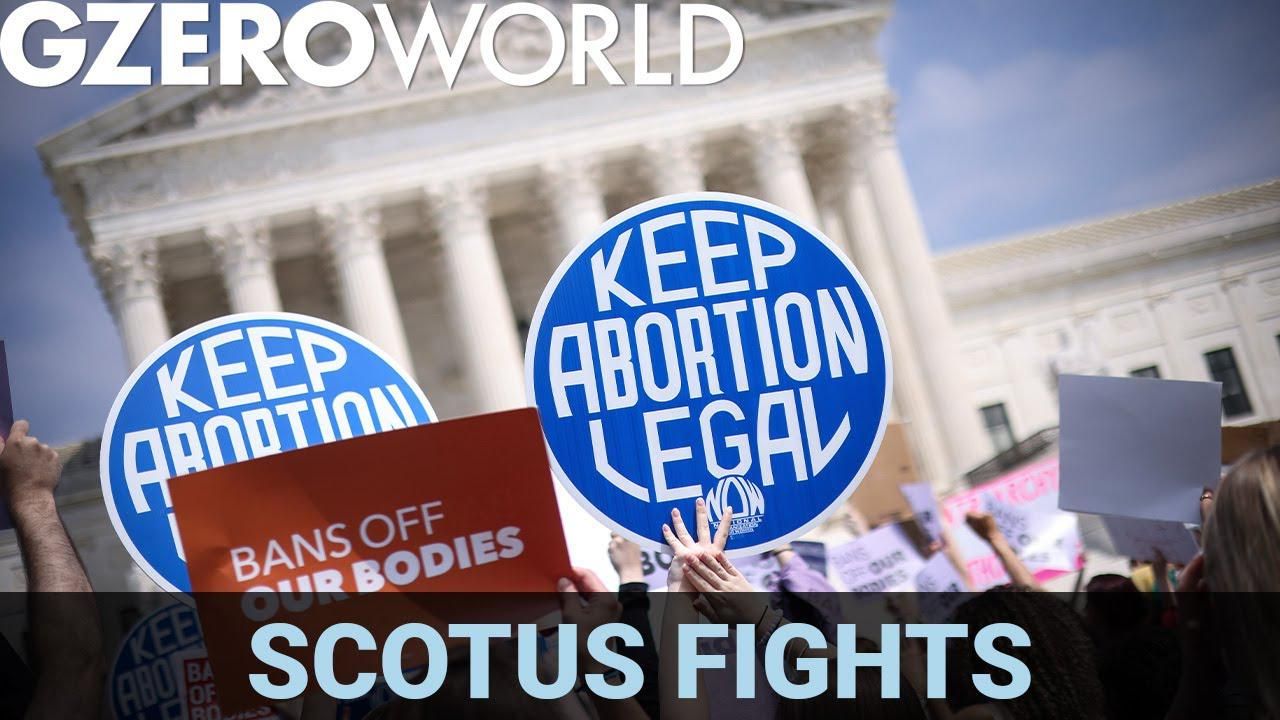
The US is now a much more divided country than it was almost 50 years ago, when the Supreme Court granted the constitutional right to abortion — recently overturned by the court.
Interestingly, most of the rest of the world is moving in the opposite direction, including in majority-Catholic countries. But striking down Roe v. Wade will surely have a bigger impact on US politics.
On GZERO World, Ian Bremmer speaks to New York Times columnist Emily Bazelon, who knows a thing or two about this ultra-divisive issue because she's also a senior research fellow at Yale Law School.
Just hours after the bombshell ruling dropped on June 24, Bazelon reacted to it by analyzing what abortion rights will look like soon across different US states; why SCOTUS upheld the constitutional right to carry guns but not to get an abortion; the next steps by the Biden administration and Congress; and why the battle over abortion pills is likely headed to the same court that got rid of Roe.
Bonus: Wanna get an abortion in Missouri? It'll be a long drive, and you may get sued.